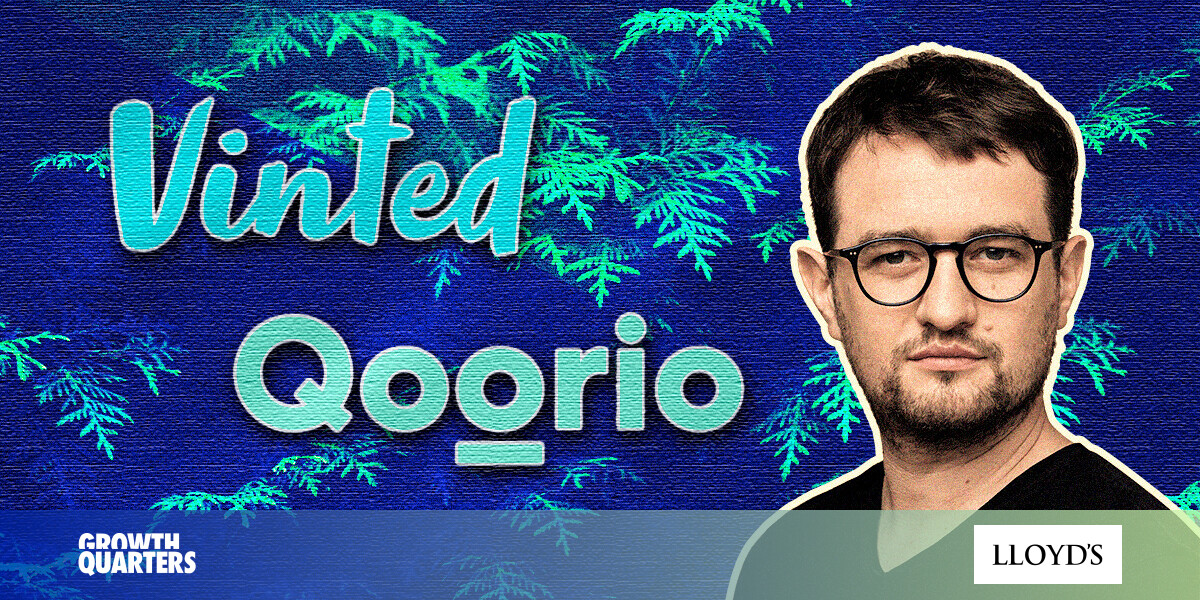
Justas Janauskas was once told to always follow his gut. It was, he says, the worst business advice he’s ever received. Why? Because instinct and ego can easily be confused.
If you don’t know Janauskas you will almost certainly know Vinted, the online marketplace he co-founded with Milda Mitkute in the early noughties.
Vinted, which profits from allowing its users to sell second-hand clothes, has had a decent run over the years — a success Janauskas says was mostly due to luck, or good timing.
Let me set the scene: Vinted was founded in 2008, during the relatively early days of the internet in Lithuania. Back in the day, there was little choice on the web, and every new idea or website was considered cool. Today, Vinted is a member of Europe’s tech unicorn club.
[Read: Here’s why ‘if you build it, they will come’ is shitty advice]
“Once we launched, we received traction immediately. The product and market fit was an instant hit, and our user base grew exponentially. Timing, the fact it was a fresh idea, the recession, and other factors played a key role too,”Janauskas tells Growth Quarters.
This, by the way, is the kind of success that most seasoned professionals launching an entirely new proposition to market can only dream of.
Typically, entrepreneurs struggle for years to get product market fit and even when they do achieve it, only a lucky few get to see their offering out in the wild.
Over the years, Vinted has gone beyond its home country, reaching consumers across several different countries — including Germany (where it operates under the brand Kleiderkreisel) and the United States — but its expansion wasn’t always smooth sailing.
At the end of 2014, Vinted’s trajectory was severely disrupted after the team implemented the wrong monetization model, which “thwarted the growth of the company” and led to what Janauskas says was the “most difficult” 18 months of his career to date.
“It wasn’t something we had experienced before and it was one of the biggest challenges for me. We had two options: either keep the current model as it was and lose our customers or flip back to the free model, become uninvestable, and run out of cash,” he says.
Inexperience is one of the biggest risks
Lack of experience played a vital role in the team’s wrong decision. “We looked at how other players in the industry were monetizing and copied the most straightforward approach for Vinted. Before rolling out everywhere, we tested the model in a few smaller markets and got relatively good results,” the entrepreneur says.
“We then rolled out to our main market which was 80% of the entire user base. We saw a very different market response — it was very negative,” Janauskas adds, admitting he struggled to accept they’d made a mistake.
In an attempt to mitigate the damage, the team tried to explain their rationale to Vinted’s customer base. They filmed videos, Janauskas himself communicated with users in forums, they invested in PR, but it was too late: “Users were leaving Vinted for other platforms.”
Eventually, and admitting defeat, Janauskas found someone who helped him create a different monetization model that, combined with an aggressive growth strategy, solved the problem.
Now, Janauskas has moved on to pastures new. In 2018, he co-founded Qoorio, a knowledge-sharing app, alongside Gabija Grušaitė.
Qoorio’s mission is simple: it’s building a community for humans to share life learnings and knowledge — an extremely powerful and useful exercise in entrepreneurial circles.
The fear of failure lingers despite success
Despite Vinted being a success, Janauskas admits he wasn’t immune to insecurity when he turned his sights to Qoorio — proving that fear of failure never actually goes away, we just change the goal post it’s projected against.
“I had different fears at different times: shall I really start this business? What if the concept doesn’t stick? Will I be able to find enough engineers to turn my vision into reality? What if I can’t raise investment quickly enough?”
Setting up Vinted and Qoorio have been two entirely different experiences. The markets are different, Janauskas is different, his skills are different, and the way he operates is different. “I went back to square one and started everything over again,” he says.
[Read: Vestiaire Collective’s CEO: Self-disrupt to keep up with customers’ evolving needs and wants]
Serial entrepreneurs abound in the business world, but do they know when it’s time to move on and start a new business?
For Janauskas is all about a change in mindset. “Once you start having existential thoughts about the purpose of life and spend too much time doing nothing — that’s a good sign that you should start something new.”
“The other thing I found was when you stop thinking about your previous business, that’s when you know it’s in good hands and are freer to move on to the next thing,” he adds.
His advice is simple: be humble, be curious, and take care of your mental health during difficult times. And if you need extra motivation, make sure you have a dream in mind and are working towards something specific.
“I love building successful unicorns, learning new things about people and myself and adapting from difficult situations. So my advice would be to have an end-goal in mind,” Janauskas concludes.
Published May 27, 2020 — 07:42 UTC
